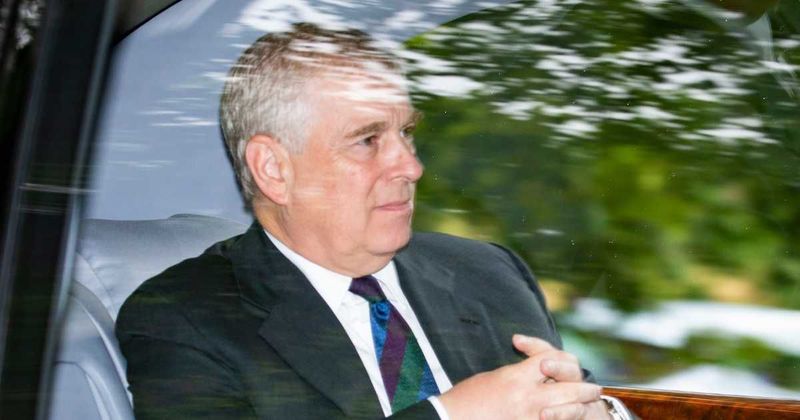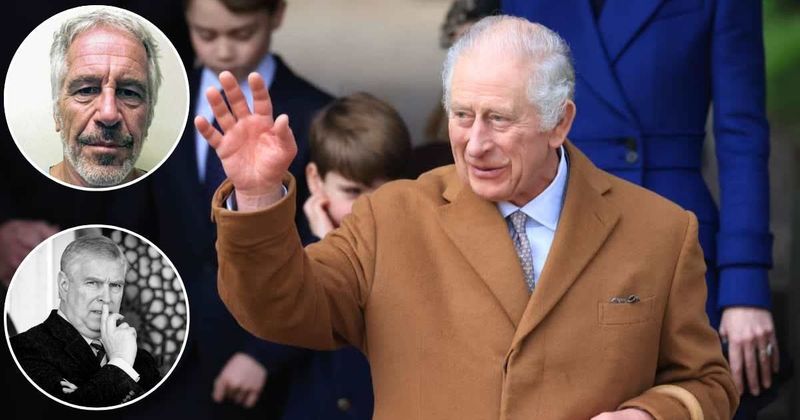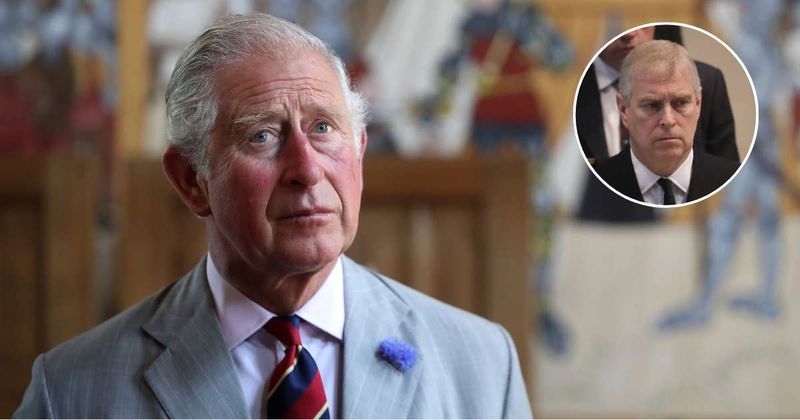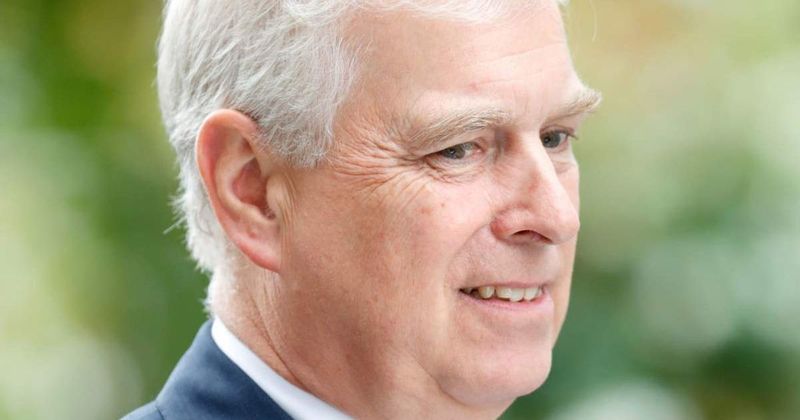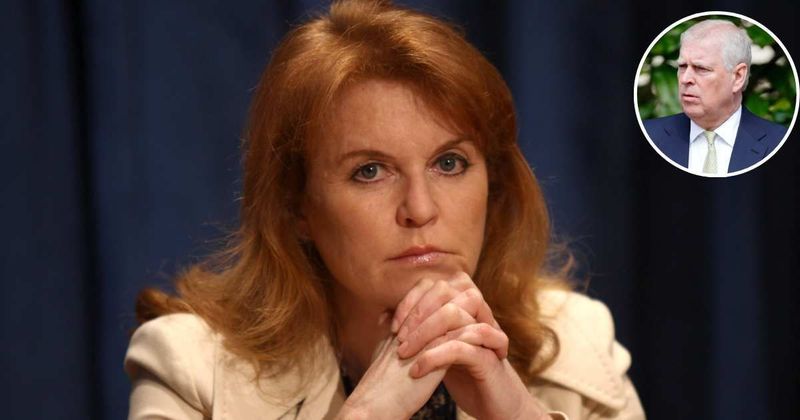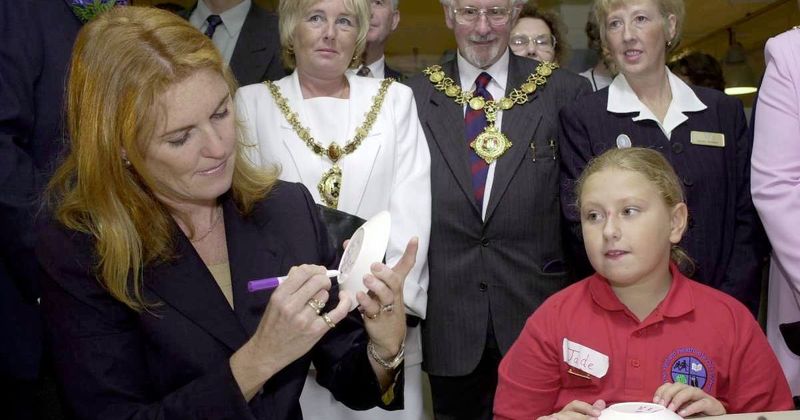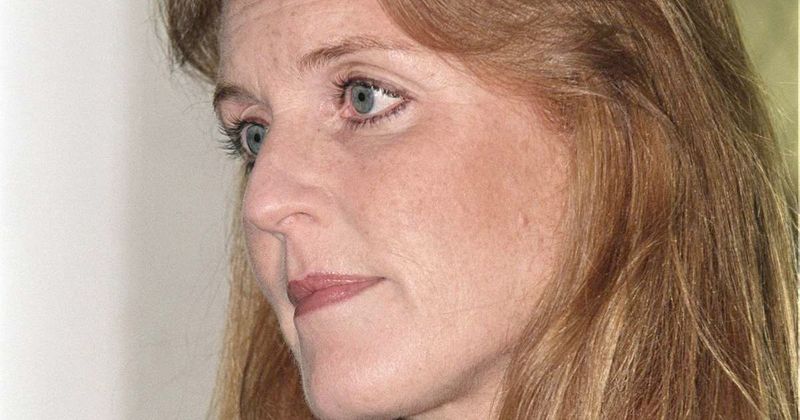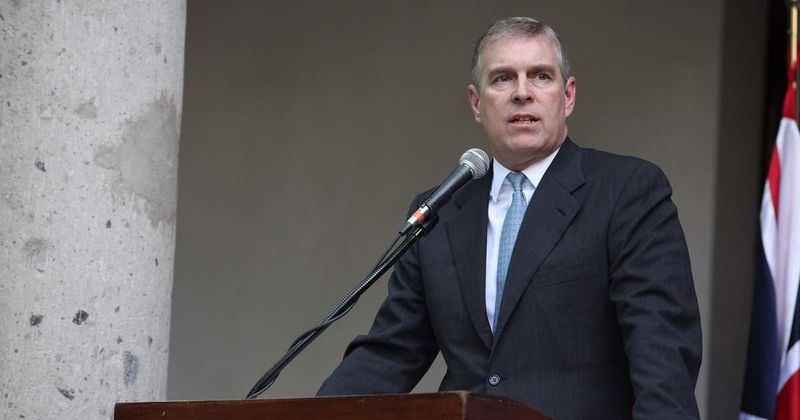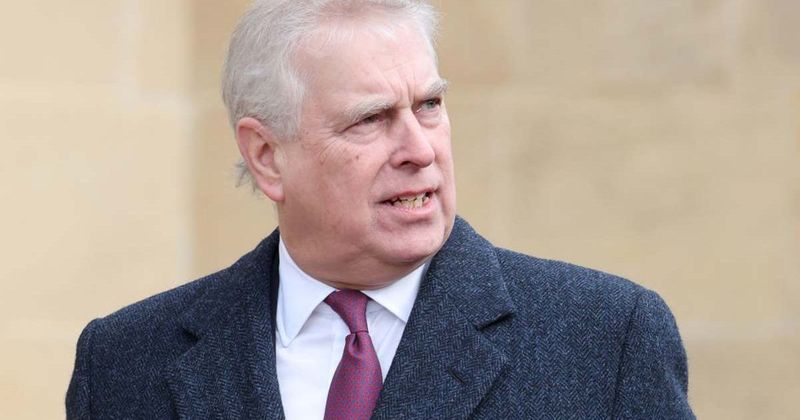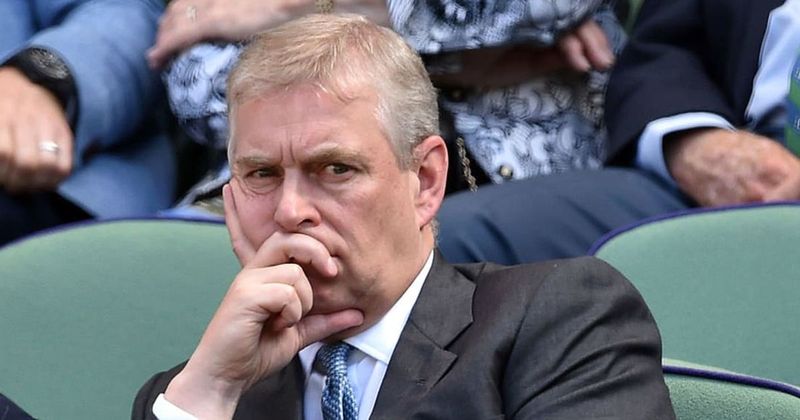Thailand’s King Vajiralongkorn May Be One Of President Joe Biden's Most Awkward Diplomatic Challenges: Inside His Controversial Reign
Concubines, cruelty and crushed enemies – Thailand’s King Vajiralongkorn is like a character from Game of Thrones, and may prove to be one of President Biden’s most awkward diplomatic challenges.
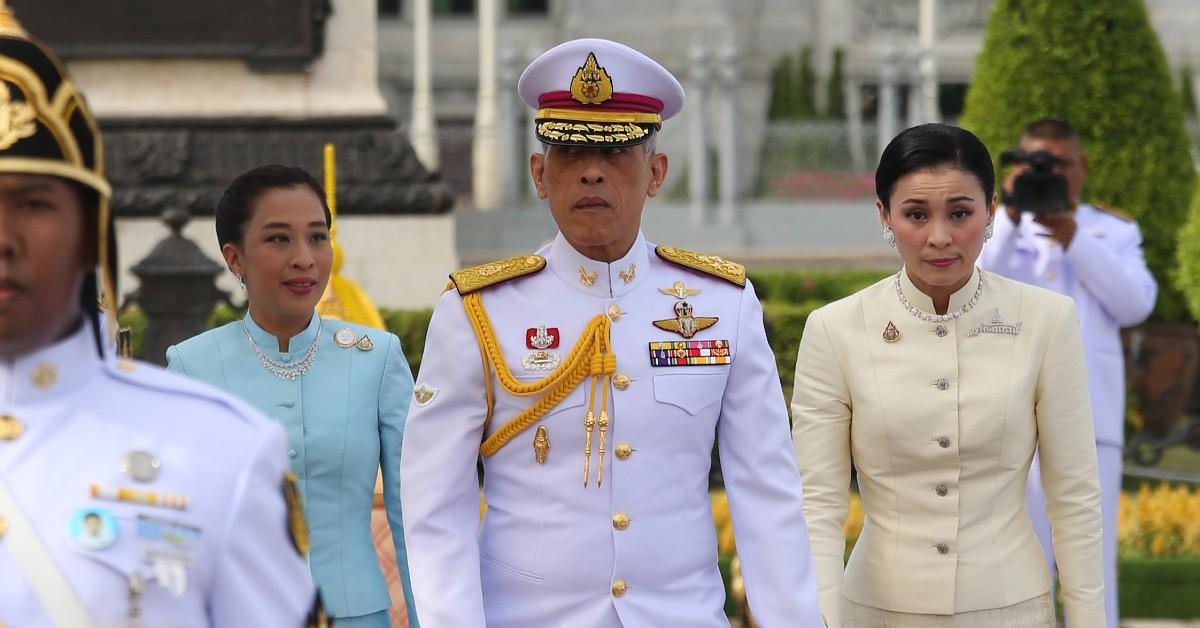
In 1833 the United States and Thailand – then called Siam – signed the Treaty of Amity and Commerce, the first formal concord between America and any Asian country. The remarkable pact came about thanks to the relationship between U.S. Ambassador Edmund Roberts and Thailand’s King Nang Klao, also known as Rama III. It promised “sincere friendship and entire good faith between the two nations,” as well as “perpetual Peace between the Magnificent King of Siam and the United States of America… as long as heaven and earth shall endure."
Some 190 years later, relations between the U.S. and its oldest Asian ally are under huge strain – and the problem lies squarely with King Nang Klao’s descendant. Of all the diplomatic problems facing new President Joe Biden, just what he is to do about Thailand’s latest king is perhaps the strangest.
King Maha Vajiralongkorn, tenth monarch of the Chakri dynasty and also titled Rama X, ascended to the throne following the death of his father, King Bhumibol Adulyadej (Rama IX) in 2016. At 64, he was the oldest Thai monarch to assume power — and he has since proved himself one of the most controversial.
So unpopular is King Vajiralongkorn among his people that, in scenes unheard of in a country where the monarchy has always been seen as a unifying force, public demonstrations have been growing in size and volume, demanding immediate constitutional reform of the monarchy – and even for the King to be deposed.
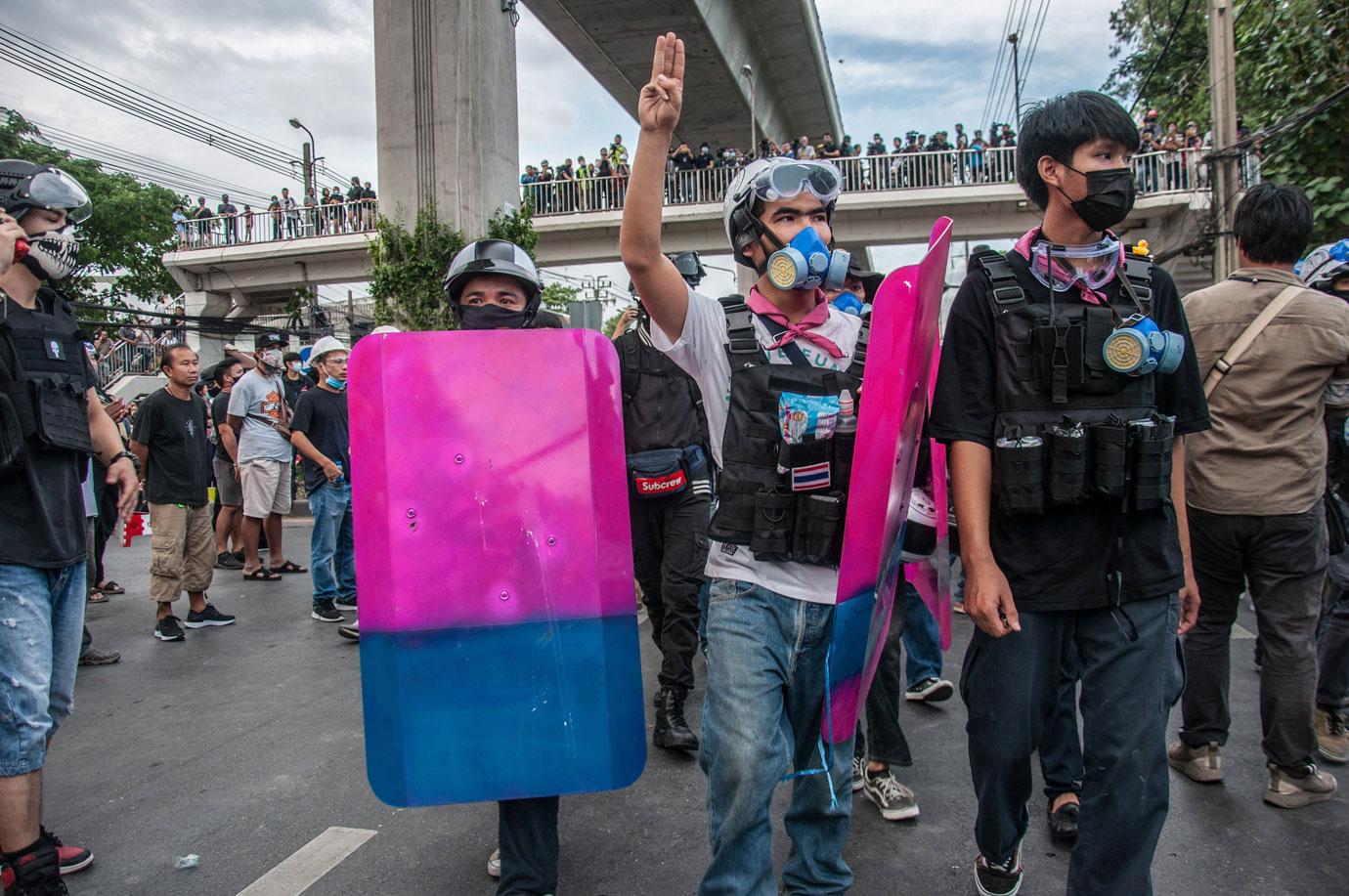
The protests have serious political consequences because of Thailand’s extraordinarily strict “lèse majesté” laws (from the Latin lesa majestas, literally translated as “injured majesty”) that forbids any criticism of the King. According to lèse majesté, it remains illegal to “defame, insult or threaten the king, queen, heir-apparent, heir-presumptive or regent." Past cases have seen successful prosecutions against Thai citizens for simply “attempting” to commit lèse majesté, as well as for making sarcastic comments about the King’s pet dog, and, perhaps most bizarrely, for failing to rebuke an offense committed by someone else.
Just by daring to take to the streets, Thai citizens are risking heavy fines and prison sentences – those openly speaking out against the King can face up to 35 years in jail. Some protestors have disappeared altogether.
For the United States, the dilemma is more subtle: does the new President continue to “uphold the sincere friendship and entire good faith” of the 1833 Treaty by standing by the Thai King; or should America instead uphold its own founding principles of democracy, equality and freedom of speech – and so side with the protestors against their monarch?
At the heart of the problem is King Vajiralongkorn himself. Now 68, Thailand’s supreme leader is the richest monarch in the world, with a family fortune of some $30 billion – and he’s not shy about spending it.
British journalist Andrew MacGregor Marshall, who was forced to flee Bangkok after the King took exception to his reporting for the Reuters news agency, gives an insight into Vajiralongkorn’s profligacy.
“He has a lavish lifestyle,” he says. “He spends most of his time in a luxury hotel in Bavaria, where he’s rented the entire hotel for himself and his entourage. He has three Boeing 737 planes – so he’s spending a huge amount of money and it’s Thai taxpayers who are footing the bill for this. It’s quite extraordinary.”
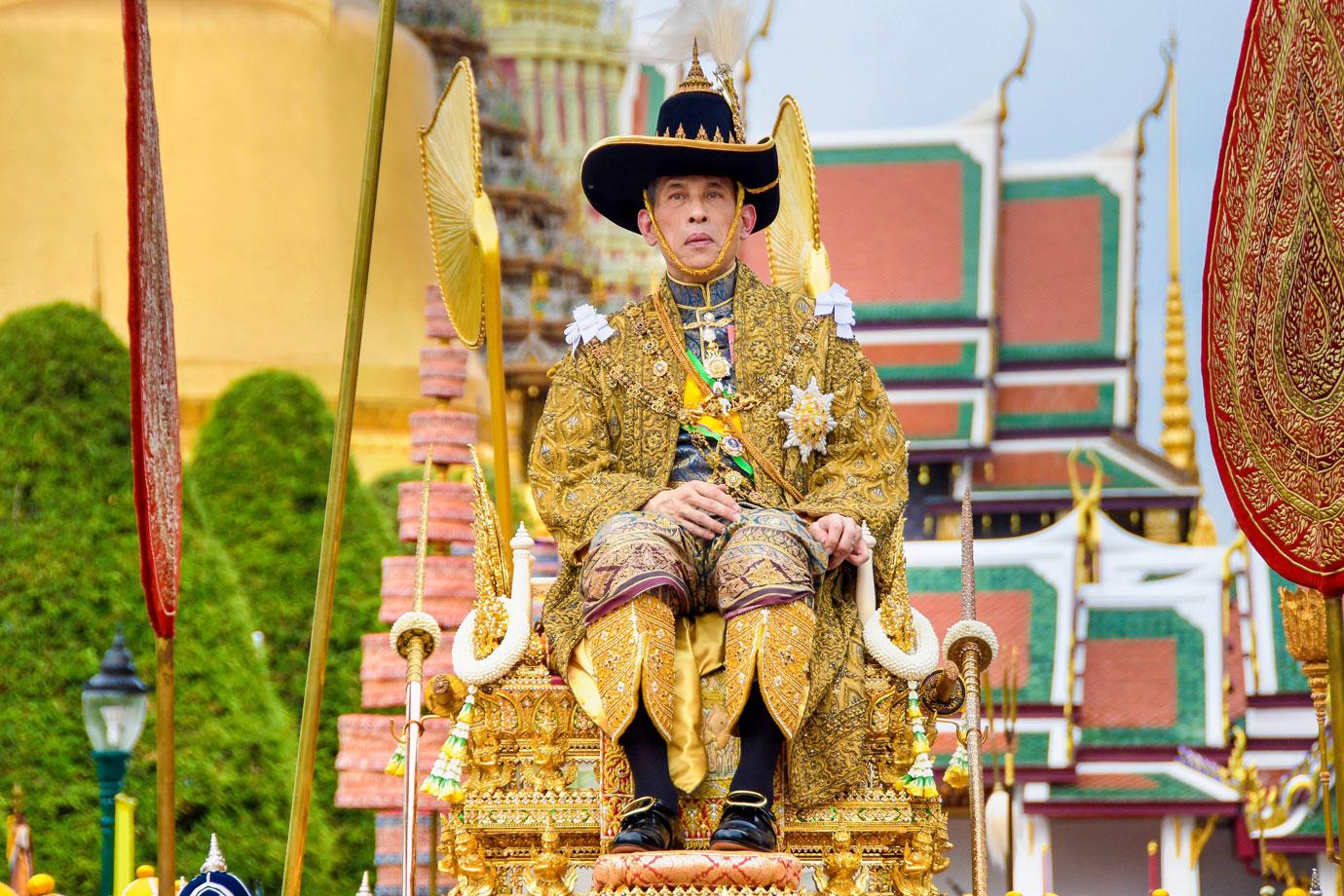
The King moved into the Grand Hotel Sonnenbichl in the German ski resort of Garmisch-Partenkirchen at the beginning of 2020, just as the coronavirus pandemic reached his home nation. He has remained there since, despite widespread resentment among Thais – not only because of the extravagant cost, but because rather than leading his people through the crisis, he has effectively run away to safety and left them to suffer.
“He wants the power, he wants the wealth, he just doesn’t want to do the duties,” says MacGregor Marshall, adding that Vajiralongkorn’s hedonistic lifestyle in Germany is also raising eyebrows: “It’s possible that he enjoys the freedom when he’s in Germany of just letting loose and wearing whatever he chooses. And Thais have been quite shocked by these images.”
In 2017 a video emerged of Vajiralongkorn strolling through a German mall with one of his mistresses – which may not sound too remarkable, until you learn that the king is wearing a tiny yellow crop top, revealing much of his upper body adorned with lurid fake tattoos. While the footage may seem ridiculous or amusing to Western eyes, for the deeply religious Thai nation so proud of its traditions, ancient culture and social hierarchy, seeing their King so apparently debased was a source of widespread shame.
“They do expect their monarch to behave in a certain way and follow religious principles, and when they see him walking around malls in Germany with fake tattoos and some of his mistresses, it did cause quite significant shock in Thailand,” says MacGregor Marshall.
His sentiments are echoed by Bow Nuttaa Mahattana, a 39-year-old teacher and mother who has become the unlikely face of the current Thai protest movement. “I think the picture with the crop top is in conflict with what the public expect from the King of Thailand,” she says. “I don’t think any Thai would be pleased to see that. Even the ultra-royalists themselves would prefer not to see it.”

As well as the bizarre clothing and fake tattoos, much of the controversy stemmed from Vajiralongkorn’s choice of companion – one of many concubines he has installed with him in his Bavarian hideaway. While every previous Thai monarch for over a century has remained monogamous, he has been married four times, and has also made no secret of his string of mistresses: in July 2019 he even bestowed a royal title – that of Royal Noble Consort – to his favorite concubine in a ceremony attended by his wife. (Three months later she was stripped of the title, supposedly for “disrespecting the Queen” and disappeared for 10 months, before being pardoned and restored as a concubine in August 2020.)
“He’s known as a womanizer, he’s believed to be living in Bavaria with a huge harem of women – and many of the women in the harem have been given a special military rank,” says MacGregor Marshall. “According to palace sources they’ve even been organized into a quasi-military unit, which the king calls the SAS after Britain’s Special Air Service, and even have the same motto, ‘Who Dares Wins.'"
The King’s crop-top shopping trip was not even the first video featuring Vajiralongkorn and a female companion to cause controversy. In 2009 when he was still Crown Prince, footage leaked of he and third wife Princess Srirasm celebrating the birthday of his poodle, Fu Fu. Although the royal couple were attended by formally addressed courtiers, the Princess wore nothing but a G-string, and at one point lay on the floor to eat cake beside Fu Fu.
Stranger details concerning the pet dog were to emerge. A few months after that birthday party, Vajiralongkorn promoted his poodle to the rank of Air Chief Marshal in the Thai Air Force. Leaked cables from U.S. ambassador Ralph “Skip” Boyce revealed that not only had Fu Fu been given the official military title, but he also attended state dinners in full doggy uniform.
“[Princess] Srirasm … confirmed that the crown prince’s miniature poodle, Fu Fu, currently holds the rank of Air Chief Marshal,” reported Boyce, after hosting a gala dinner for the royal family. “Fu Fu was present at the event, dressed in formal evening attire complete with paw mitts, and at one point during the band’s second number, he jumped up onto the head table and began lapping from the guests’ water glasses, including my own. The Air Chief Marshal’s antics drew the full attention of the 600-plus audience members, and remains the talk of the town to this day.”
After Fu Fu’s death in 2015, Vajiralongkorn declared the poodle’s passing was to be mourned with four days of Buddhist funeral rites and insisted on full state honors for his cremation.
Vajiralongkorn at that time may still have been Crown Prince – but there was little doubt that he would be King before too long. His father, King Bhumibol, was then 87 years old, and increasingly frail.
Bhumibol had been King of Thailand since 1946, and by the time of his death had become the world’s longest-reigning monarch. He was also one of the most popular kings in Thai history: even with the country’s draconian lèse majesté laws, he commanded overwhelming – and genuine – respect and affection amongst the Thai people. Reporting on Bhumibol’s 80th birthday, the BBC noted: “It is not just his practical deeds they are looking at, but his manner, his modesty, his reserve, his gentleness, and his apparent detachment from the world – qualities he has worked hard to perfect and project. He is as much a spiritual leader as a worldly one.”
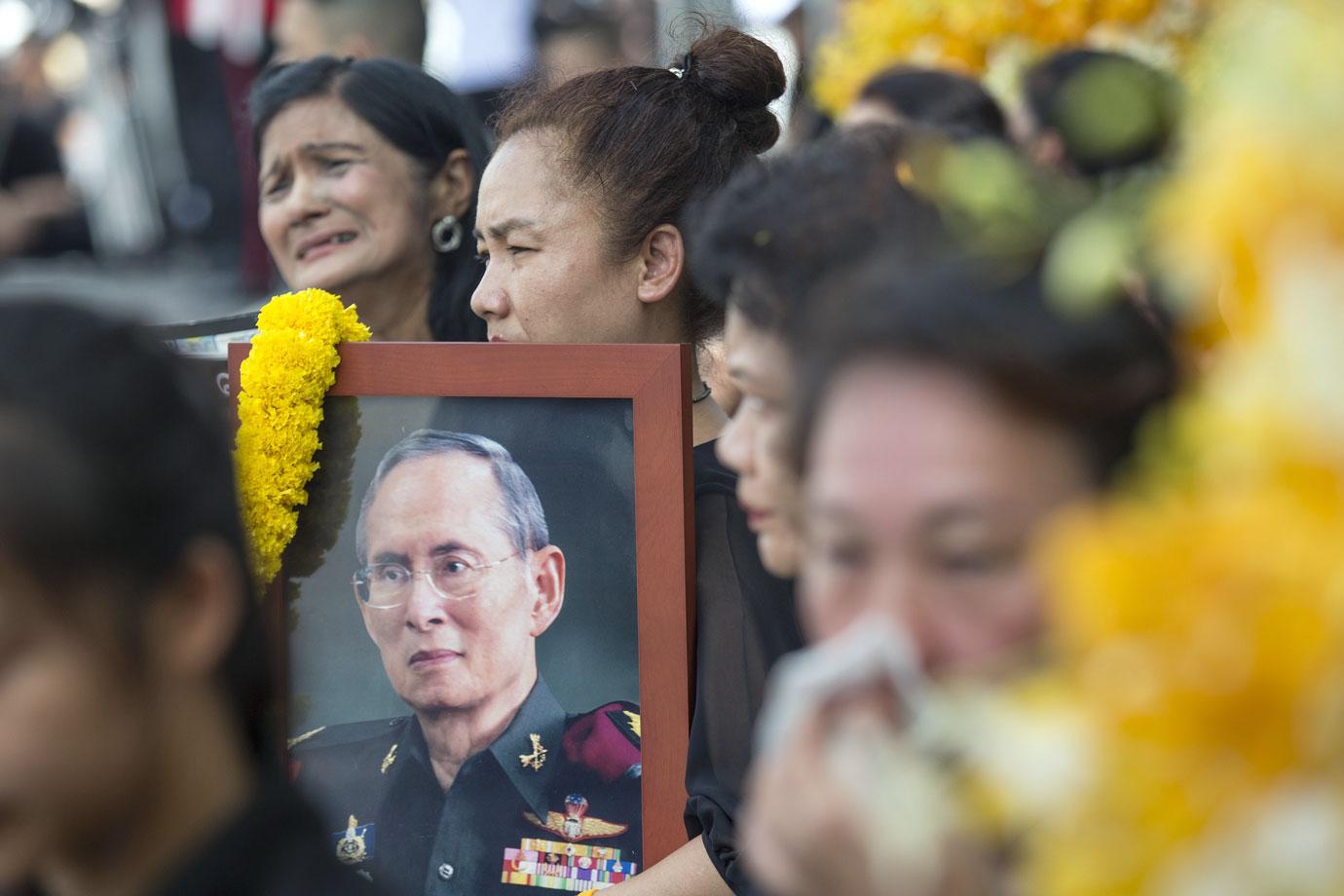
Born in Cambridge, Massachusetts, Bhumibol also enjoyed a strong relationship with the United States, hosting no fewer than four Presidents on state visits, including Bill Clinton, George Bush and Barack Obama. But even as he named his son as Crown Prince, concerns grew in the U.S. government about the impact Vajiralongkorn might have on diplomatic relations between the two nations.
Leaked cables written by the U.S. ambassador to Thailand Eric John in 2007 reported on his conversations with former Prime Ministers General Prem Tinsulanonda and Anand Panyarachun, and Air Chief Marshall Siddhi Savetsila.
“All three had quite negative comments about Crown Prince Vajiralongkorn,” the cable reads. “While asserting that the crown prince will become King, both Siddhi and Anand implied the country would be better off if other arrangements could be made. Siddhi expressed preference for Princess Sirindhorn; Anand suggested only the King would be in a position to change succession, and acknowledged a low likelihood of that happening."
There are also repeated references to Vajiralongkorn’s womanizing. When the ambassador asked where the prince was, Prem is quoted as saying: “You know his social life, how he is,” which John says is a “presumed reference to Vajiralongkorn's preference to spend time based out of Munich with his main mistress, rather than in Thailand with his wife and son.”
The cable continues: “Siddhi, in a similar vein, noted that the Crown Prince frequently slipped away from Thailand, and that information about his air hostess mistresses was widely available on websites; he lamented how his former aide, now Thai ambassador to Germany, was forced to leave Berlin for Munich often to receive Vajiralongkorn.”
A recent report by Australian investigative show 60 Minutes also unearthed diplomatic cables concerning Vajiralongkorn’s time in that country, where he attended military college. The documents reveal that military officials were not convinced he even had what it took to become a good soldier – let alone a good king. They described the cadet as “obviously unsure of himself, needs others to lean on and is seeking security,” with a subsequent document by Australian government officials saying they believed the crown prince found his future responsibilities “traumatic, bewildering and overwhelming.”
“This is the problem with monarchy – you can never be sure if the hereditary heir is going to be a good King,” says Andrew MacGregor Marshall. “People loved King Bhumibol but they were really afraid of what would happen when Vajiralongkorn took the throne.”
He also points out that the King’s faults are not limited to his personal life. Vajiralongkorn is not only embarrassing his people – he is actively tyrannizing them.
“His behavior is almost pathological, he is almost like an elderly King Joffrey [from Game of Thrones]. He seems to go out of his way to be cruel, he seems to go out of his way to proclaim that he is the absolute power in Thailand, and that’s what has Thais so worried, and that’s why so many people have taken to the streets to try to oppose him.”
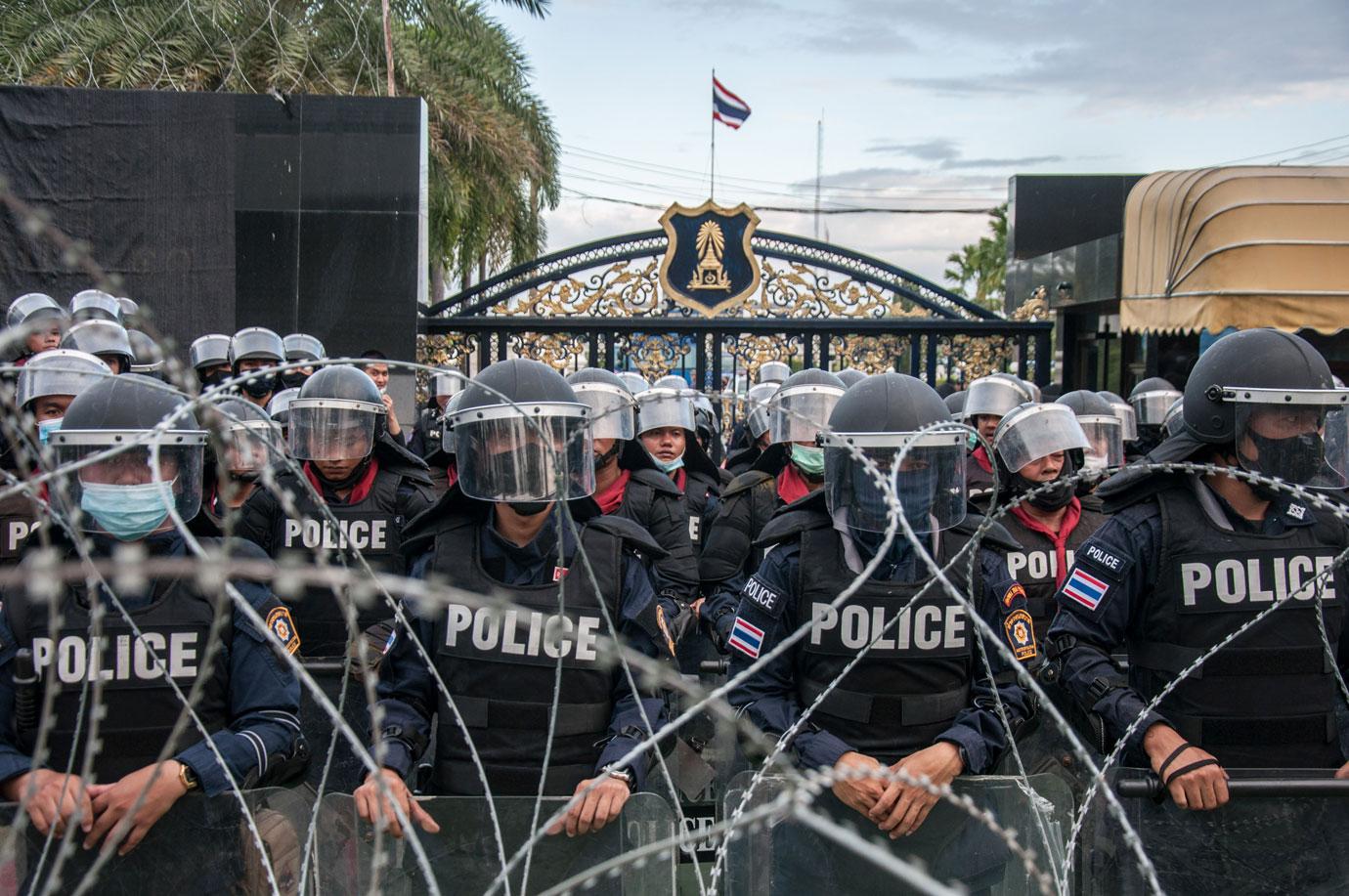
Most worryingly, it seems that Thailand’s lèse majesté laws are being abused in far more sinister ways than simply jailing those who speak out against the King. According to the organization Human Rights Watch, since Vajiralongkorn assumed power, at least eight pro-democracy activists have gone missing, never to be seen again.
“Since 2016 they’ve been disappearing in mysterious circumstances and at least two of them have washed up dead in the Mekong river with their legs broken, disemboweled, their stomachs stuffed with concrete,” says MacGregor Marshall. “The King’s cruelty is one of the most worrying things about him. We’ve seen that in his treatment of his former wives, and of his current mistress who was thrown in jail for 10 months just last year, with no real legal process.”
The ”disappeared," as they are known, have become an international issue. In September, the United Nations Office of the High Commissioner for Human Rights voiced concerns over the case of the latest missing activist, Wanchalearm Satsaksit, 37, who was reportedly kidnapped in broad daylight from a street in the Cambodian capital Phnom Penh, where he had fled following an arrest warrant in his home country.
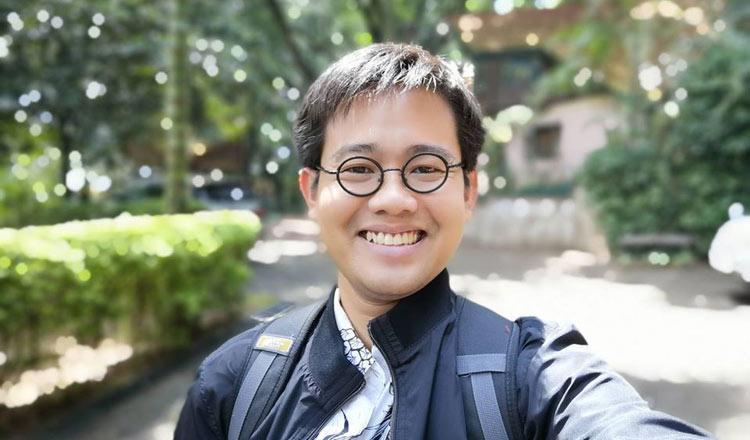
Known as a political satirist, Wanchalearm had also been a prominent member of Thailand’s United Front for Democracy against Dictatorship movement. According to Human Rights Watch, he was attacked by a group of armed men in June and bundled into an SUV. In a letter to the Cambodian government, U.N. human rights officials underlined “the importance of urgent action to ascertain his fate and whereabouts.” It also raised concerns about the lack of new information on the activist’s disappearance, “despite the registration number of the car involved being known and there being multiple witnesses.”
At the time of writing, Wanchalearm’s fate is still a mystery — but few believe that the disappearance of such an outspoken critic of the Thai King is a mere coincidence.
Meanwhile, King Vajiralongkorn remains in Germany with his harem, and across Thailand, the protests continue to grow. A September 19 rally saw up to 100,000 people take to the streets in what some commentators described as an “open challenge” to the King, and following similar sized protests in October, a “severe” state of emergency was declared in capital Bangkok. The protests continued nevertheless, with clashes between protestors and police becoming increasingly violent.
According to Bow Nuttaa Mahattana, who is currently battling sedition charges with a potential jail sentence of 30 years for her part in the protests, the anti-monarchy movement is primarily led by a new generation of young Thais, for whom the idea of a “Joffrey-like” king ruling with cruel impunity seems hopelessly out of step with the modern world.
“The younger generation are the force behind it. They’re not willing to compromise with any of their demands,” she explains. “The adults who led the previous protests, at one point they’d be willing to compromise and negotiate. With the young people it’s different. The thing about teenagers, they have that kind of character.”
For Bow, as for so many of the protestors, the age of Thai Kings may be coming to an end. “People are taught to think that the King is perfect. Perfect in every way,” she says. “I think if you drill everything down to one word, it’s about injustice. By nature every human being cares about injustice. The younger you are, the more passionate you feel about it. They feel injustice and they want to get rid of it.”
For America’s new President – and a new administration that he promises will reinvigorate the nation’s standing on the international stage – just what to do about King Vajiralongkorn presents a uniquely tricky situation.
During the Trump administration, the Asia Foundation produced a report on the future of the Thai-U.S. relationship, billed as a “project to strengthen relations between Thailand and the United States." Although that report concluded that “there is renewed interest in the United States and Thailand to create a deeper, stronger, and recalibrated bilateral relationship for the 21st century," it also noted that: “In Washington, Thailand has largely disappeared from the foreign policy agenda — mostly on account of neglect, indifference, and distraction.”
It also quoted one “former U.S. Senator” who said: “Thailand has gone off the radar completely in the United States. You don’t read much about Thailand in The Wall Street Journal, The New York Times, The Washington Post, and The Economist. If something strategic is going on in Thailand right now, it’s under the radar.”
With a King living the high life in the Bavarian Alps with his concubines while Bangkok burns, young people clash with riot police and those who speak out against him mysteriously disappear, it would seem that for President Biden, relations between the United States and its oldest Asian ally can remain under the radar no longer.

